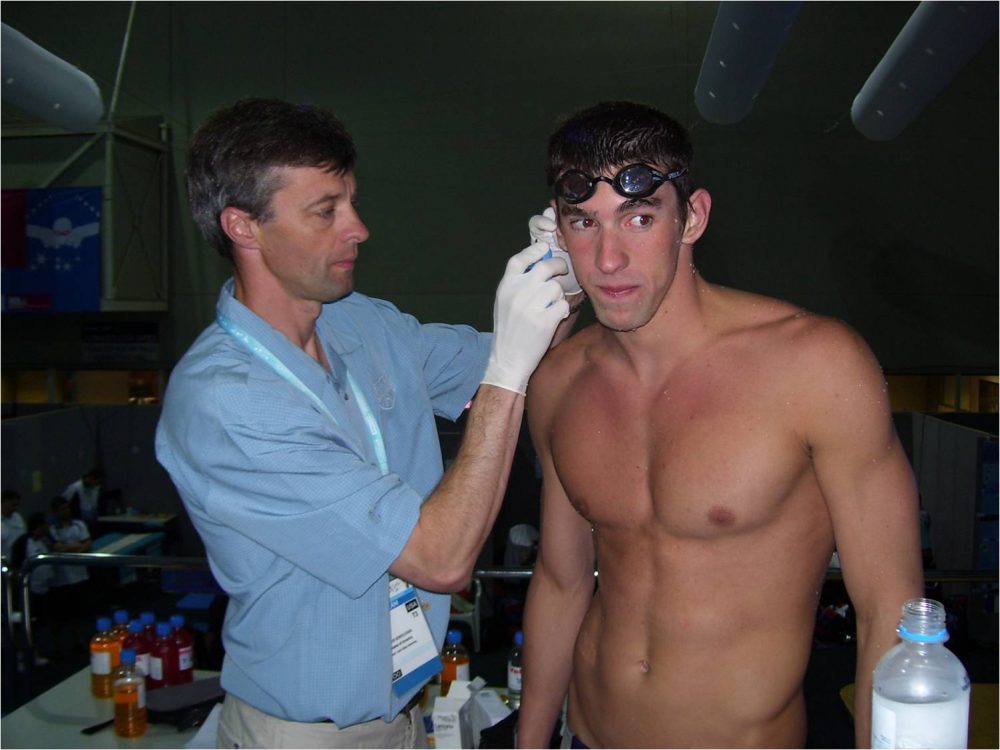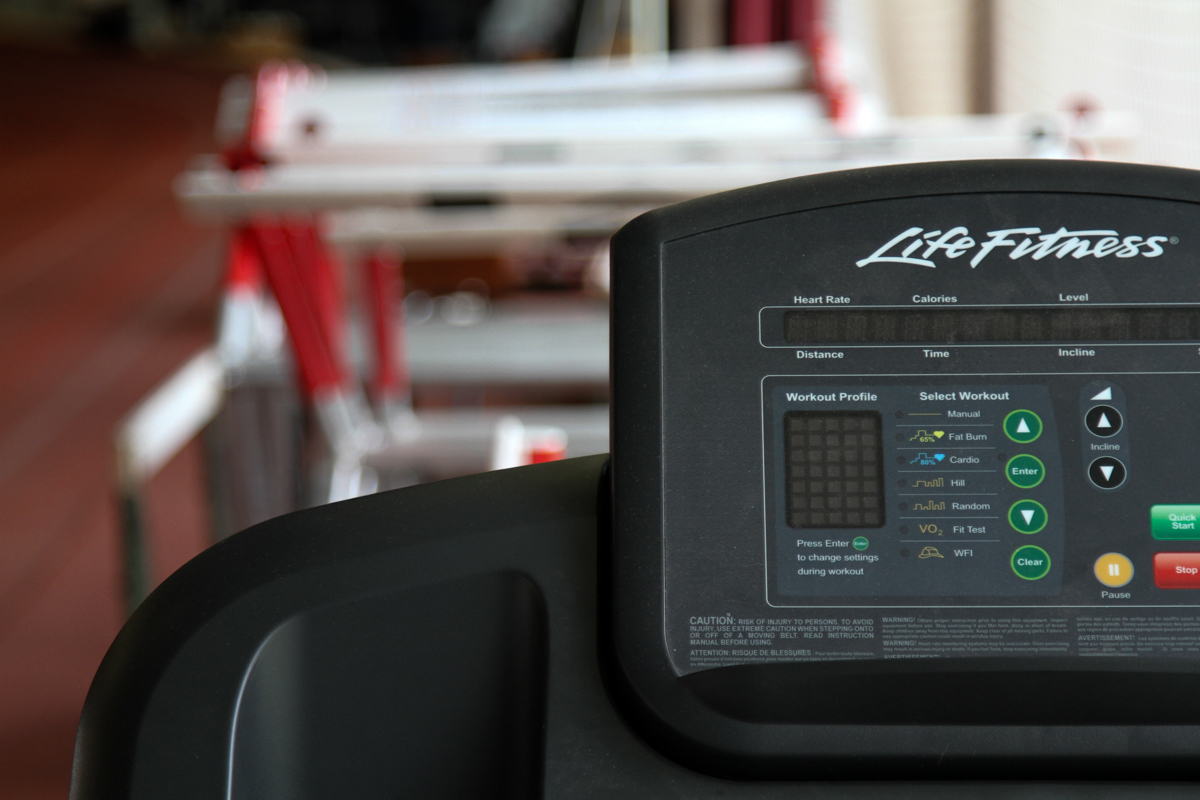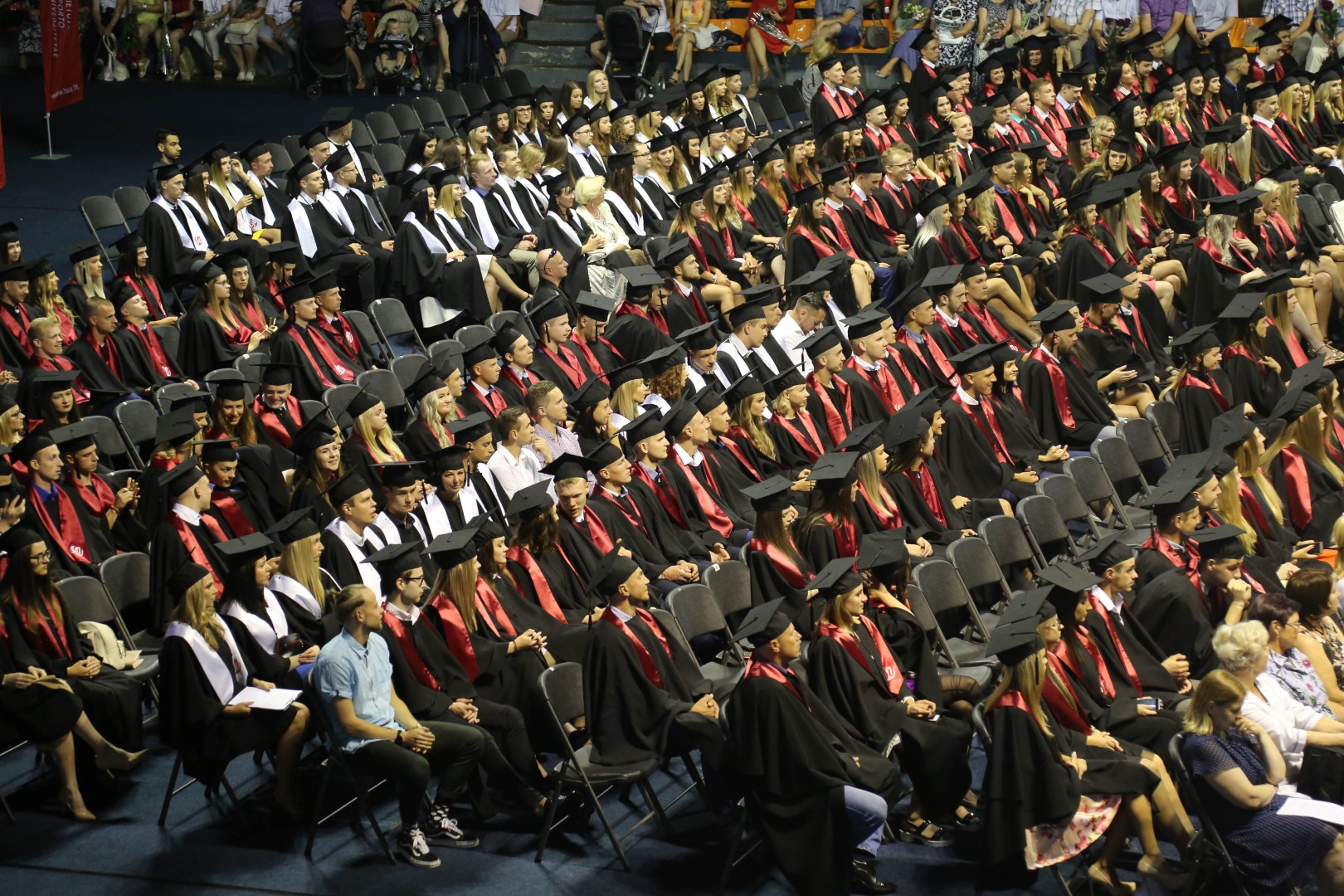“During my 35 years of work, the requirements for coaches have grown significantly. A modern coach really needs to know much more than a coach needed to know a few decades ago,” says Genadijus Sokolovas, a famous swimmer and an alumnus of Lithuanian Sports University (LSU). He has been successfully pursuing a career as a sports scientist in the United States since 2000 but has managed to find time to share his experience with colleagues and students in Lithuania.
What should a modern coach be like?
The world is changing rapidly, so there are many changes and challenges in the field of coaching. World records for most sports have improved dramatically and the flow of sports information has increased. Now coaches can use the world’s publications and databases, participate in various coaching conferences, watch the best athletes in the world during the competition, and get acquainted with modern training systems. There is a lot of new information in other areas of training, too, e.g., selection for the most suitable sports disciplines, training at different ages, movement training, application of information technology and modern devices in sports and many others.
Thus, modern coaches must be active, curious, interested in the latest achievements in sports science, they have to follow the news in all areas of coaching and apply advanced information technology in their work.
After a long break, you have come back to deliver online lectures to LSU graduates. What is of the most importance when training future coaches?
After a 20-year break, it is fun to present an updated course on computerization in sports at Lithuanian Sports University. Mathematics and computer programs are rapidly being implemented in a variety of sports, so our students need to keep up with other countries with their knowledge.
The course of computerization in sports is not easy, but very useful. I introduced the students to the peculiarities of computerization in sports, explained how to calculate and apply mathematical functions in sports, we discussed sports forecasting, various mathematical models (change in sports performance, maturation of young athletes, analysis of training load, change of sports performance and load in the annual training cycle), etc. In online seminars, students learned how to calculate record graphs in various sports disciplines, how to use Excel training templates to calculate training load intensity zones based on pulse, lactate, or athletic performance, and how to develop a model of annual training load.
I think that future coaches and physical education specialists have to learn how to apply mathematical laws in sports, exercise physiology, children’s physical education as early as possible in the course of their studies. Perhaps they will start developing computer programs themselves. Of course, knowledge of physiology, biochemistry, training methods, psychology and knowledge of other areas is also very important for a coach.
Do you share your experience with the US students as well?
I have not given lectures to US students yet, but several universities are interested in our research. I am involved in the programs of the University of Delaware, where I give lectures to coaches on the training of athletes and practical application of sports science.
What is the coach training system in the US?
To work as a coach in the US, you need to obtain a permit, which is usually issued by sports federations or coaching associations after taking special courses and passing exams. By the way, there are several levels of coaching qualifications. For example, the American Swimming Coaches Association has a 5-level coaching program.
Many highly qualified coaches in the US have undergraduate, graduate, and some have doctoral degrees.
Coaches in the USA have many opportunities to improve by participating in various programs offered by universities, the Olympic Committee, federations, coach associations, sports science organizations, etc.
Why is it important for a coach to constantly improve?
Coaches must improve their qualifications as new knowledge emerges every year, the best coaches improve their training methods, and new technologies, computer programs, devices are created to track the athlete’s sleep, nutrition, recovery, hydration and other things. So, a professional coach should know all this.
I am actively involved in coaching training in both the US and international organizations like FINA, the International Swimming Federation, which has a 3-level coaching qualification program. I also run courses for coaches in other sports under the US Olympic and Paralympic Committee programs.
The unique research methodology developed by you, an experienced FINA expert, is especially appreciated, and advice and consultations are sought by both world-famous water sports masters and coaches.
I am happy to pass on my professional experience in conferences and courses organized by the US Olympic Centre for coaches and athletes in various sports. I help them to correct technical errors, improve the training process.
The US Olympic Training Centre in Colorado Springs also hosts international courses every year, which are attended by coaches from all over the world, including Lithuania. I give them lectures on training methodologies, athletes’ fatigue and recovery, and their testing. I also develop new computer programs for planning and managing of the training process as well as athlete testing.
Together with colleagues, we are already completing the development of an important computer database for Talent Identification and Development. We have started implementing it for federations and Olympic committees in several countries.
How have the coronavirus pandemic and all the restrictions affected your work and the activities of athletes in the United States?
During the first wave of the pandemic, training sessions in the USA were organized, but there were no competitions. I think it was not bad, because athletes were able to train more, and the results have only improved since then.
I have not stopped working; only more work has been moved to the virtual space: I give lectures at conferences and conduct refresher courses. Together with colleagues, we continue testing at the Olympic Training Centre, we further develop computer programs, new testing and training equipment. The number of trips has decreased, but workload has only increased.




